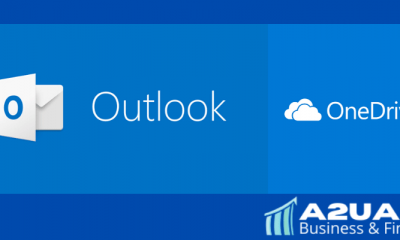Education
New Trick: Automated Processes For An Anti-Money Laundering Company
Published
1 year agoon
By
admin
Money
Automated business processes have revolutionized the way companies operate, providing a streamlined and efficient approach to complete tasks. At anti-money laundering companies, automated processes can provide an even more valuable service; by using Artificial Intelligence (AI) algorithms, they can detect suspicious transactions and alert staff in real-time.
Benefits Of Automating Anti-Money Laundering Processes
Automating anti-money laundering processes can bring a range of benefits to an anti-money laundering company. By leveraging automated business processes, companies can improve their compliance with AML regulations and reduce the amount of time taken to identify suspicious activities. Automated systems also help to ensure consistent performance levels across all departments, reducing the potential for human error or oversight.
Automating certain tasks related to money laundering allows companies to save time and money while also increasing efficiency. Automation can also be used to monitor customer accounts more closely, allowing companies to detect suspicious activities in real time and take appropriate action quickly and effectively. This helps prevent fraud and other criminal activities from taking place and ensures that companies are meeting their regulatory requirements.
By utilizing automated business processes at an anti-money laundering company, businesses can improve their compliance with AML regulations while also saving time and money. Automation also helps to reduce the risk of human error or oversight, as well as provides businesses with real-time detection capabilities so they can take appropriate action quickly when needed. Overall, automating anti-money laundering processes provides a number of important benefits that can help businesses protect themselves from fraud and remain compliant with relevant laws and regulations.
Technology Used To Implement Automation
Once companies have identified the regulatory and security considerations of their automated business processes, they must then select the right technology to implement their system.
A wide variety of tools are available to facilitate automation, so businesses must choose the one that best meets their needs. Commonly used technologies include artificial intelligence (AI), machine learning (ML), robotic process automation (RPA) and natural language processing (NLP). These tools can be used for a range of tasks, from data entry and analytics to customer service operations.
Integration can be a challenging process, as it requires an understanding of different systems and how they interact. It is important to ensure that data is shared efficiently and securely between systems, and that any issues are quickly identified and resolved. Consulting services should be hired to ensure the successful integration of different systems and maximize the efficiency of the process. GSI offers services to assist with the integration of various systems, from the planning stages to the implementation. Their team of experts can help with the technical challenges of integration, as well as the management of the integration process.
It is also important for companies to ensure that their chosen technology is up-to-date with the latest security protocols and anti-money laundering regulations. They should consider whether their system will integrate with other existing systems in order to maximize efficiency.
Legal Implications
It is important for these companies to ensure that their automated systems comply with all relevant laws and regulations. This includes ensuring that customer data is securely stored and protected, as well as adhering to any applicable privacy requirements. Companies should also be aware of any potential liabilities they may face if their automated processes produce inaccurate results or fail to detect suspicious activities.
It is also important that anti-money laundering companies have a clear understanding of how their automated processes will interact with other systems, such as those used by financial institutions or government agencies. Companies should be aware of what information they are sharing with these entities and how it could potentially be used or misused. Additionally, businesses should review the applicable laws and regulations related to data sharing and ensure they are compliant with them.
Security Considerations
Automated systems can create a variety of new risks, such as the possibility of data breaches or malicious actors infiltrating the system. To mitigate these risks, businesses should employ robust security measures, such as encryption and authentication protocols. Additionally, they should regularly monitor their systems for any suspicious activity and have a response strategy in place in case of an attack.
It is also important for companies to ensure that their employees are properly trained on how to use automated systems and understand their roles in keeping them secure. Employee negligence or lack of understanding can inadvertently lead to security weaknesses that could be exploited by malicious actors. Companies should also make sure that any third parties they work with have adequate security measures in place, as well as conduct regular audits to ensure they remain compliant with all applicable laws and regulations.
Best Practices
Having the right technology in place is only part of the equation when it comes to implementing automated processes for an anti-money laundering company. It’s also imperative that organizations establish best practices for how their system will be used and managed.
To ensure the most effective use of automation, companies should adhere to a few key principles. They must prioritize security throughout their system, ensuring that all data is kept private and secure. They should also consider implementing audit trails so they can track and monitor activities within their system. Companies should establish clear policies and procedures for using the system so that employees understand how it works and what is expected of them.
Regular testing is essential to make sure that the automated system continues to meet regulatory requirements and operate at peak efficiency. Companies should periodically check their system for any potential risks or vulnerabilities, as well as review any changes made to ensure they are working properly.
Automated business processes can be used to great effect at anti-money laundering companies. With the careful implementation and ongoing monitoring, these organizations can leverage the power of automation while maintaining compliance with relevant laws and regulations.

Trending

 France FR3 years ago
France FR3 years agoGame of Thrones Saison 8 episode 5 streaming VOSTFR

 Education2 years ago
Education2 years agoDoes CBD work as a sleep aid? and its Disorders

 Finance4 years ago
Finance4 years agoWeTransfer Alternatives (based on Outlook and OneDrive) for big file transfers

 Credit Card4 years ago
Credit Card4 years agoKELISTO: How Can I Get Free Credit Card?

 Education2 years ago
Education2 years agoCan Cannabis Cause You to Grind Your Teeth? [Explained]

 Featured4 years ago
Featured4 years agoPERSONAL INCOME TAX. VARIATIONS IN PERSONAL INCOME TAX

 Business2 years ago
Business2 years agoUse of Technology in Education for Learning and Teaching

 Finance4 years ago
Finance4 years ago3 Best Financial Tips